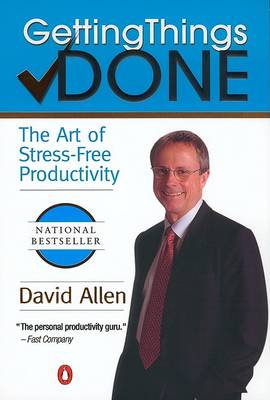I was going to tackle my procrastination problem last weekend but I never got around to it.
By Sunday at 5:48 pm I realized I had blown it again. Throughout the week I feel like I barely have enough time to cook, eat, tidy up, write an article and do the odd errand. I lean towards the weekend, when I have two whole days to finally get some work done. To improve my blog, to catch up on my correspondence, to get some monkeys off my back like fixing things that need fixing, organizing things that need organizing, tackling things that need tackling.
But the weekends go by and I never catch up. I don’t use the time well. Time is not what I’m short on, even though that’s what I tell myself all week.
Sometimes I do sit down early in the day and pound something out, but then I give myself a well-deserved break and that’s usually the end of any productivity. I end up clicking around on the internet, then clean up, then cook something, then watch a bit of a documentary online, then try to work again, then get distracted. Then I decide to wait until after supper to do some work, then I start reading something after supper, then if I’m still home, it’s already after 9:00 so I decide I’ll get an early start the next day.
I avoid taking on the real important stuff. I create work of secondary importance so that I never really have to confront the really worthwhile things. When I get on a roll, I back off and stay backed off. I take breaks that turn into written-off days. I am addicted to hanging it up for the night, to letting myself off the hook.
The important stuff doesn’t get done, at least not before my procrastinatory tendencies have created an obvious, impending consequence of not doing it, like incurring a fine, really letting someone down, or getting fired.
So much of what I want to do isn’t terribly difficult and wouldn’t take a lot of time to get done. Looking at my projects list now I have items like: book an appointment for X, send in that change of address form, phone so-and-so about Y, write a short piece for Z. And many of them have been sitting there for weeks or months. I have the most bizarre aversion to tackling things.
Getting Things Donee (GTD) es un clásico de los libros de productividad. Propone un método para eliminar el estrés de nuestras ajetreadas vidas, con prioridades no siempre bien definidas y siempre cambiantes. No hace distingos entre vida personal y profesional. Para él, organizar una primera comunión de nuestra hija o contratar a un ingeniero son tareas que entran de la misma manera en el flujo de trabajo que propone.
El libro es de 2001, por lo que muchas de las cosas que propone son físicas, con archivadores y cajones. Hoy en día todo lo que propone lo puedo hacer ocn un programa conmo Evernote, que me ayuda a archivar, clasificar y tener siempre a mano en cualquier lugar con conexión a internet todos los documentos que yo quiera.
El núcleo del método es el flujo de trabajo:
En esta entrada de Nacho Espino hay un resumen muy breve del método y aquí hay un paper científico que toma GTD como una vía de acceso a una praxeología, o una teoría de la acción práctica (los filósofos modernos se dedican a algunas cosas que desconocía, claro).
Me lo he tomado muy en serio y la verdad es que si uno se pone a seguir estas normas sí es cierto que de repente el flujo de trabajo se simplifica. Siempre hay una única cosa que hacer, todas las demás están apuntadas y listas para revisión y ordenadas por prioridad. Hay trabajo de revisión diario y semanal, pero se hace (lo hago) con bastante alegría. Y he metido mano a tareas que llevaban pendientes conmigo desde hacía años. Y, sobre todo, me libera de tiempo para pensar no en lo inmediato sino en mis objetivos estratégicos. Qué quiero hacer con mis hobbies y en un plazo superior a un mes en el trabajo. A dónde quiero llegar.
La verdad es que llego tarde pero con ganas. Y lo recomiendo.
